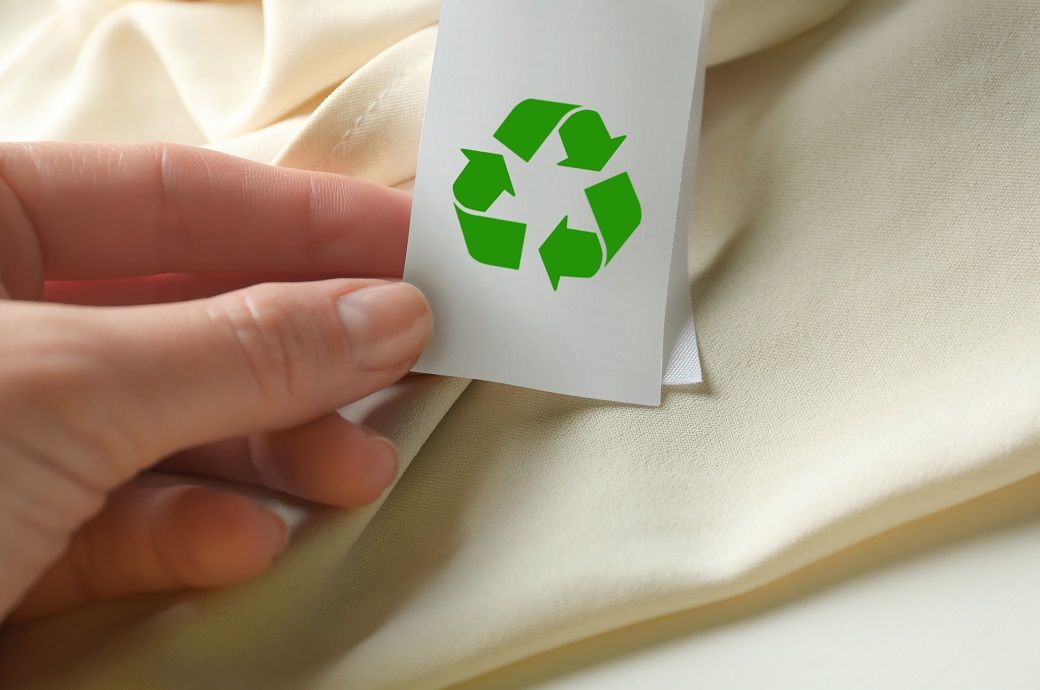
A symposium on Enabling Circularity and Sustainability in Textiles held in New Delhi recently engaged the next generation to expand the reach of the Circle Back campaign. It brought together industry experts, students from esteemed schools and colleges in Delhi alongside entrepreneurs, and researchers to share lessons and knowledge to tackle post-consumer textile waste.
Textile waste, responsible for enormous water, energy and chemical footprints, is a mounting issue in India and requires all stakeholders to come together to address it. This requires a shift from fast fashion to sustainable and mindful consumption. The potential for recycling and upcycling textile waste can catalyze a new green economy of jobs and startups, aligning with India's SDG (Sustainable Development Goals) targets.
Approximately 81 per cent of all fast fashion garments end up in landfills (either due to a short life cycle after consumer use or due to excess stock) and approximately 50 per cent of fabric ends up as waste during manufacturing. To meet the enormous demand for apparel, the textile industry consumes 4 per cent of the world's water. Producing a t-shirt takes around 2,700 litres of water, which equals the amount of drinking water needed by one person in 2.5 years.
The Circle Back Campaign began in November 2023 in collaboration with the ministry of textiles, government of India, Deutsche Gesellschaft für Internationale Zusammenarbeit (GIZ), India, and knowledge partner Vertiver, and the symposium brought together the activities and their outcomes that were launched at the beginning of the campaign. These activities include behaviour change workshops conducted by Vertiver on Cut-Put-Li (Cut Fast Fashion, Put the Planet first and Live sustainably), seminar and poster paper contest at the Indian Institute of Technology, Delhi and a series of upcycling and design innovation projects with the National Institute of Fashion Technology, Delhi.
"For any change to happen, we must equip our stakeholders with information. What we communicate and how we communicate, plays an important role. The key lies in understanding our consumers. And these consumers don't mean some remote third person, it includes all of us. The choices we make, and how we make those choices and what are the reasons we make them,” said joint secretary, ministry of textiles, Prajakta Verma.
"GIZ is not in the business of manufacturing things or promoting things. It's in the business of ideas,” Farhad Vania, portfolio management advisor, GIZ, India, said.
"We are so excited to have seen the impact Taanka and Cut-Put-Li is having on students-this is what we had envisioned with the campaign,” Chhaya Bhanti, founder, CEO and creative director, Vertiver, said.
The symposium also marked the launch of a new exhibition on Circle Back showcasing students' creatively upcycled products from NIFT-Delhi, IIT-Delhi, Dr BR Ambedkar School of Specialised Excellence, Sanskriti School and The Mother's International School. The students shared their experiences and lessons learnt in the Circle Back Campaign with all participants of the symposium.
"We try to tell the youth of the country, what the importance of reducing and reusing is. Till the time we don't inculcate a sense of pride in the student that they are doing a great service to society by reducing waste, we won't be able to generate ownership in them with respect to circularity,” Himanshu Gupta, secretary of CBSE, said.
Fibre2Fashion News Desk (RR)